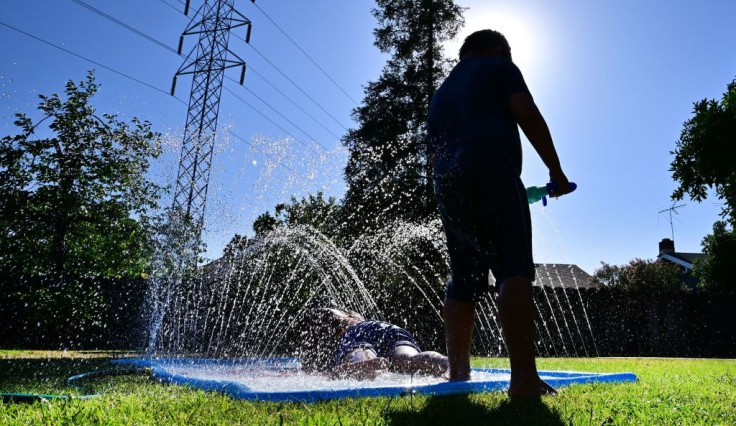
High humidity and temperatures hitting large parts of the United States last week collided with the ongoing challenges many people face from high energy costs and the rising inflation.
Sgt. Melissa White, a corps administrator for the Salvation Army, told NBC News that her facility in Macon, Georgia, where temperatures are expected to be in the upper 90s, has been packed with people looking for relief from the heat wave.
White said that with the high gas prices, people couldn't afford to run air conditioners even if they have them, so it is forcing many folks who have never reached out for help to come into these cooling stations.
Climate change fueling more frequent and more intense heat waves
Nearly one-third of the population in the U.S. was under heat advisories and warnings last week due to an early-season heat wave affecting a vast portion of the country, bringing high humidity and scorching temperatures to millions of Americans across the South and the Midwest.
Scientists said climate change is fueling more intense and frequent heat waves in the United States and worldwide. As temperatures soar, access to cooling resources can be a matter of life and death, according to CNN.
The Salvation Army of Macon is doing its best to help the people of Georgia, with the organization expanding its operations during the heat wave to serve as a cooling center for the public.
Macon's Salvation Army also runs a shelter where people can stay overnight. There are growing concerns, as White said she and her colleagues are already struggling to keep up with demand, especially with forecasts projecting high heat and humidity to linger for weeks in the state.
White said they have such a large influx that they are looking at opening a second spot in their worship center. She added that technically, they have a 122-bed system, but they also have cots, and they just keep taking people in until they can't get them in anymore.
Heat is known as a silent killer
Cities across the U.S. are taking similar steps to protect their residents from heat-related illnesses and death. Local governments in Denver, Detroit, and Phoenix announced plans last week to open cooling centers and build new structures to provide shade and distribute water.
According to health experts, heat is sometimes known as a silent killer because symptoms of heat-related illness can often go unnoticed until it is too late. The body's organs can become overtaxed and shut down if they lose the ability to regulate temperature. Heat can also aggravate symptoms from underlying conditions such as diabetes, kidney problems, or cardiac disease.
Among those at highest risk of heat-related illness and death when temperatures rise are young children, people experiencing homelessness, the elderly, and individuals with pre-existing medical conditions, according to the Centers for Disease Control and Prevention.